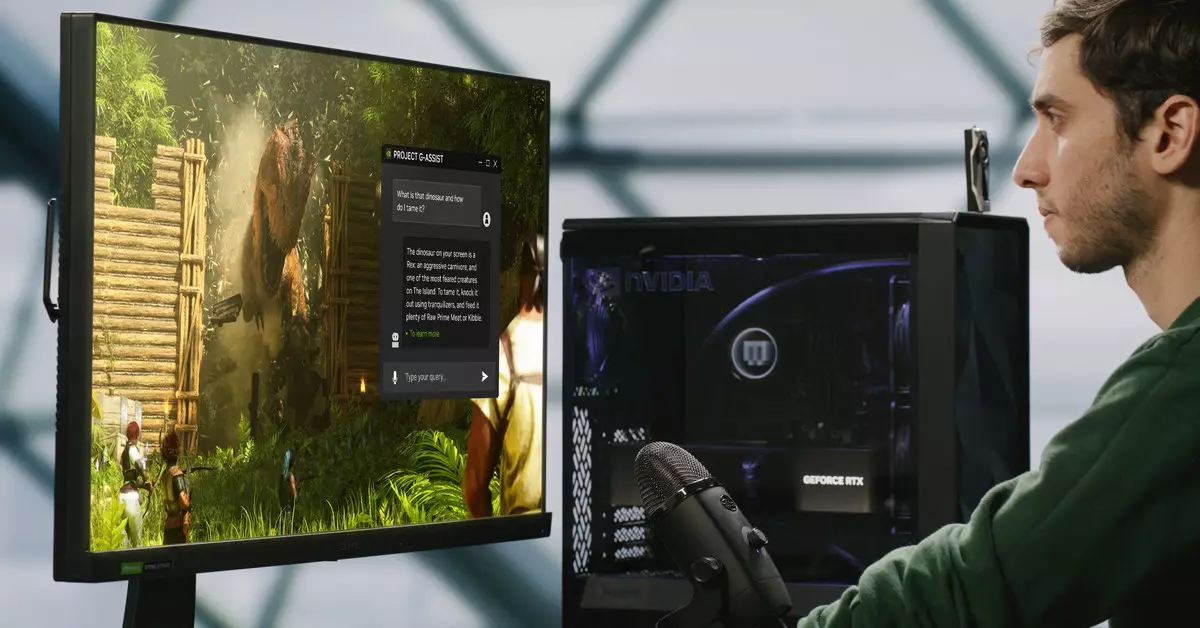In 2017, Nvidia first introduced G-Assist as an April Fools’ prank, imagining an AI assistant that could help gamers while they stepped away from their screens. Fast forward seven years, and G-Assist has reemerged as a real demo showcasing the potential of a powerful GeForce AI assistant for game developers and RTX GPU owners. While Project G-Assist is currently just a tech demonstration, it provides a glimpse into how AI assistants could revolutionize the gaming experience by providing guidance and optimizing settings based on user inputs.
During the demo, Nvidia showcased G-Assist’s ability to respond to voice queries within games, such as identifying in-game items and locations. This AI assistant can even adapt to the player’s progress, offering tailored advice and assistance based on the player’s actions. By understanding the context of the game and the player’s objectives, G-Assist aims to enhance the gaming experience by providing real-time support and recommendations.
Beyond gameplay assistance, Nvidia’s AI assistant offers system optimization and performance tuning features. It can analyze system configurations, identify potential performance bottlenecks, and provide recommendations for improving gameplay experience. Whether it’s optimizing graphics settings, achieving target frame rates, or overclocking the GPU, G-Assist aims to streamline the gaming experience and maximize hardware capabilities.
While the concept of AI assistants in gaming holds promise, there are concerns about the reliability and accuracy of such technology. Generative AI algorithms are prone to errors, raising questions about the effectiveness of AI-guided gameplay. Despite these challenges, the collaboration between industry giants like Microsoft and Nvidia in developing AI assistants for gaming signals a shift towards integrating AI technology into mainstream gaming experiences.
As AI assistants in gaming continue to evolve from concept to reality, it’s essential to consider the implications of AI-driven gameplay support. While the convenience and potential benefits of AI guidance are enticing, the ultimate success of AI assistants will depend on their ability to adapt to diverse gaming scenarios and provide meaningful assistance to players. With advancements in AI technology and increasing industry interest, the era of AI-powered gaming assistance may soon become a standard feature in the gaming industry.


Leave a Reply